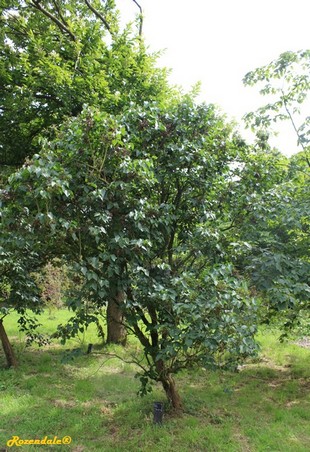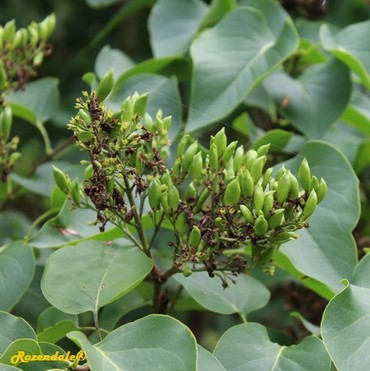Description and Uses
Syringa vulgaris (Common lilac) is a
temperate
shrub from
South East Europe . It is mainly grown for its
ornamental crops
, which have a
short shelf life. The crop is harvested by
hand picking. It starts flowering after
3 -
6 years. The yield will be
0.1, but in its top season there will be a yield of
0.5. Other crop types include;
ornamental, timber, apiculture, edible flowers, . The
{missing data} is used as
inedible . The
flower is used as "
{missing data} " with
{missing data} (0 -
0) as its significant
phytochemical. There is
{missing data} extracted by
{missing data} from the
shrub's
{missing data} yielding
0.5 -
{missing data} oil. The
shrub's wood is called
{missing data} and has a density of
900 -
1,000 kg/m³. Regarding firewood production the
shrub's growing speed is
medium, it's energetic value is
4500 ckal/kg and the wood's drying speed is
medium. After
50 years the
shrub can be totally removed as it reached its commercial and ecological goal.
Syringa vulgaris has a lifespan of
100 years.
Environmental limitations
The shrub is
7 meters tall with a crown of
4 meters wide. The
shrub prefers a planting distance of
300 cm and a row distance of
300 cm. It is
fast growing and
intolerant to shade.
Syringa vulgaris has a
shallow root-system and it has symbiotic associations with the
fungi
(endo-mycorrhiza). It is
able to fix nitrogen moderately with
"Enterobacteriaceae bacteria. The name(s) or string of bacteria include(s)
"not applicable ". The
shrub's flower-morphology is
monoecious and is pollinated by
bees.
Syringa vulgaris is
deciduous in winter and
not allelopathic and has
no thorns.
Syringa vulgaris thrives in an altitude of
0 to
1500 meters above sea-level
(temperate). The minimum temperature is
-40°C; optimally between
7 -
25°C. The optimal rainfall is
1450
mm/year. Without irrigation the annual rainfall should be between
550 -
1800mm (L/m²). The optimal soil-pH is between
7.0 -
8.0 in a soil texture of
loam. To salt it is
intolerant to wind
tolerant and to fire
intolerant.
Pests and Diseases
Syringa vulgaris is susceptible to the following pests:
. And it's susceptible to the following diseases:
(missing data) ,
,
.
Seed Propagation
Seeds are
stratificant and can be stored for
9 months. There are approximative
0
seeds/kg. The seeds can be propagated as followed:
{missing data}






